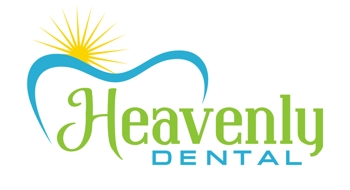If you have dental insurance, please bring the following information with you to your appointment. This is information we need to help you with your dental insurance policy.
- Name of Insurance Carrier
- Policy Number
- Certificate or Identification Number
- Division Number
- Employer
- Name of subscriber or policy holder
- Employee’s date of birth
Questions patients should find out about their insurance
The best place to find the answers to these questions are in the policy booklet provided by your insurance company. Due to the Personal Information Protection Act (PIPA) insurance companies will not always provide this information to the dental offices. It is your responsibility to know your dental plan. Dental offices are not informed of any changes made to your plan and they do not know when your plan is terminated.
- What is percentage is covered for basic services: Checkups, cleaning, fillings, root canals
- What is the annual maximum allowed per patient? Is there a separate maximum for basic and major services?
- What is the benefit year? Calendar or 12 rolling months?
- Is there an annual deductible?
- How many units of scaling and/or root planing are covered per year? One unit of scaling or root planing is 15 minutes of the hygienist’s time. The hygienist does not base her treatment on your insurance coverage. She will make recommendations for the length of time required for her to complete your cleaning based on your clinical needs.
- How many recall appointments are allowed annually? Eg: 2 per year, every 9 or 6 months (A recall appointment is a check up. Your plan will have a separate maximum for cleaning units such as scaling and root planning.)
- What percentage is covered for major treatments? For example: crowns, bridges, or dentures
- Does your plan pay for white fillings on molar teeth or do they pay only the silver (amalgam) filling equivalent?
Financial Policy
Our dental office staff will work with you and your insurance company to help you get the best benefit from your dental plan. It is always important that you notify us of any changes in your plan. Your insurance policy is a contract between you and your employer and the insurance company. Please be aware that most insurance companies will not provide us with any information directly. After your appointment you will be responsible for any portion not covered. Please speak with the receptionist to discuss payment plans.
Why can’t my dentist create a treatment plan based on my dental plan coverage?
Your dentist’s first obligation is to your health. If you have an issue with your mouth, your dentist will present treatment options to meet your oral and overall health needs; your treatment plan is not based on your dental plan coverage.
It is important to make your treatment decisions based on your health care needs, not based on what your dental plan covers. Speak to Dr. Sarmast about her treatment recommendations and cost estimates along with any consequences in delaying or refusing treatment so you can make an informed choice for your health.
Is there anything I can do to limit the cost of dental care?
Prevention is the best way to maintain good dental health. Practice good dental habits at home: brush and floss daily; limit sugary drinks and snacks; don’t smoke; and visit your dentist for regular care including an examination. It is important to diagnose problems before they become more complex and costly. Dental disease is progressive and unlike a cold will not resolve itself. The cost of prevention is always far less than the cost of neglect. (Source: The Cost of Dentistry)
For further information on dental plans and the cost of dentistry, please visit the following websites:
Dental Plan Coverage
Cost of Dentistry

